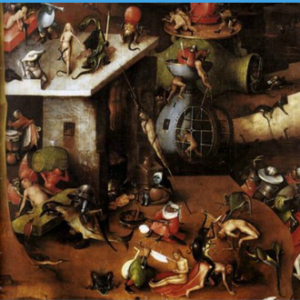
The non-thing and the amoral world
For Byung Chul-Han, what is changing is the world of merchandise with the digital, he will analyze the power of the book and the ebook, the latter as a non-thing, the smartphone and other digital objects, but the world of morals as well is changing, he quotes in passing:
world of merchandise with the digital, he will analyze the power of the book and the ebook, the latter as a non-thing, the smartphone and other digital objects, but the world of morals as well is changing, he quotes in passing:
“A person uninterested in things, in possessions, does not submit to the “morality of things” based on work and property. She wants to play more than work; experience and enjoy more than possess. In its cultural phase, the economy also shows playful traits. Theatrics and performance are becoming increasingly meaningful. Cultural production, that is, the production of information, increasingly adapts artistic processes. Creativity becomes its motto”, using Vilém Flusser’s reasoning about the moral of the thing.
What Chul-Han calls the cultural phase should be an in-depth analysis of the period of the cultural industry, radio, cinema and television, which was nothing more than a transition from merchandise to the imagination through advertising, where the brand and not the content, so not only are the work and the product alienated, but its very essence is alienated, using a term from the medieval period, as we have already analyzed in a previous post, it loses its quiddity, its identity and singularity, as it was the cultural industry that gave everything the appearance of sameness.
Also in the final section he will analyze things of the heart, and it is good to remember that these also had their singularity in the past, today transformed into an amoral and timeless character, in the wrong sense of the word, what is eternal is essence and singular and then returns to quiddity.
The final section says, things of the heart, recalling the fox’s dialogue with The Little Prince by Antoine de Saint-Exupéry: “The little prince asks the fox what “apprivoiser” means. To which the fox responds: “It’s something almost forgotten […]. It means becoming familiar, establishing relationships. […] For me, you are just a little boy like a hundred thousand others” and this is the loss of singularity, there it will introduce listening and the relationship with the Furthermore, these relationships cannot be developed without a moral conception.
The exposure of personal relationships, the end of private life through legal and illegal filming, the increasing exposure of even children, is increasing and amoral, there is no room for growth and respect for the morals of each age, not even old age, Rejected as moral and as an age of wisdom, it is increasingly common to expose this “good age” in a pejorative and amoral sense, without limits of respect (Chul-Han calls it symmetry in The Swarm) and a balanced morality.
Everything seen as “freedom”, but which plunges into “upheavals in the world of life”, the author’s subtitle, we are heading towards a civilizational crisis and the return depends not on things, but on a new morality of the state, of human relations and of public life.
Han, Byung-Chul (2022) Não-coisas : reviravoltas do mundo da vida / Byung-Chul Han ; tradução de Rafael Rodrigues Garcia. Brazil, Petrópolis, RJ: ed. Vozes.









